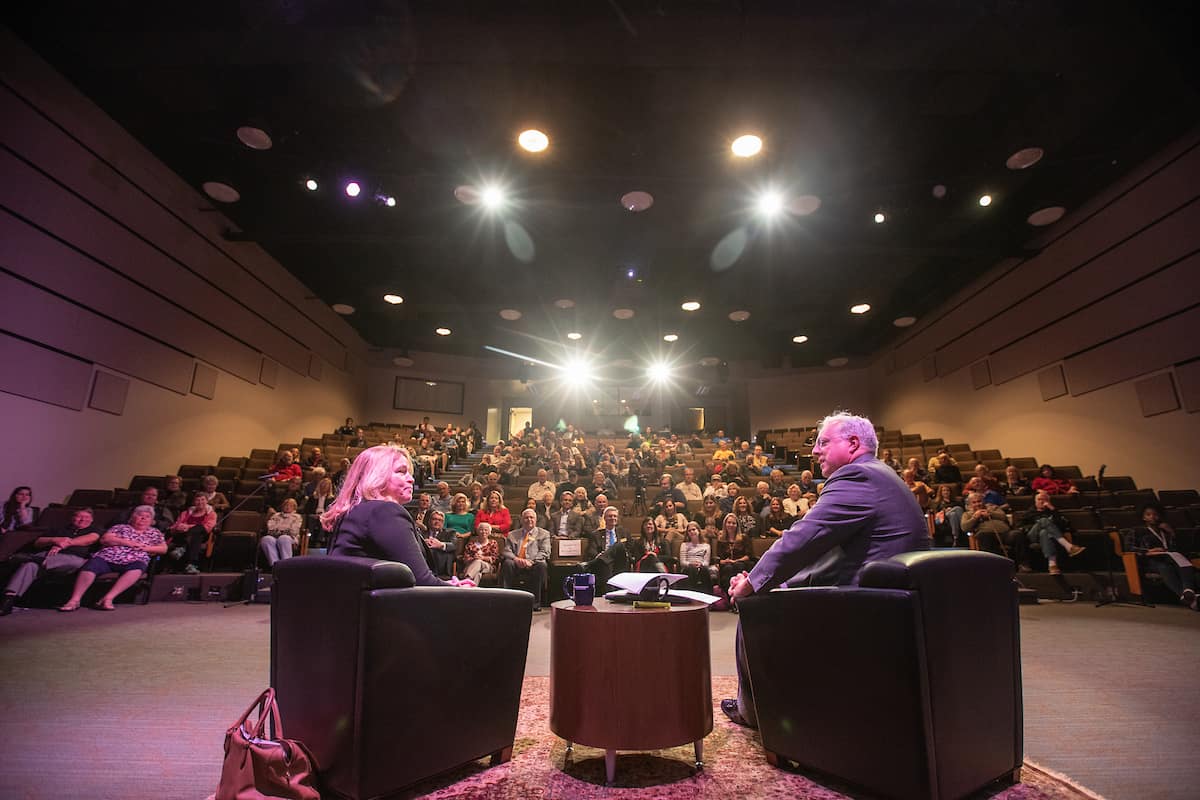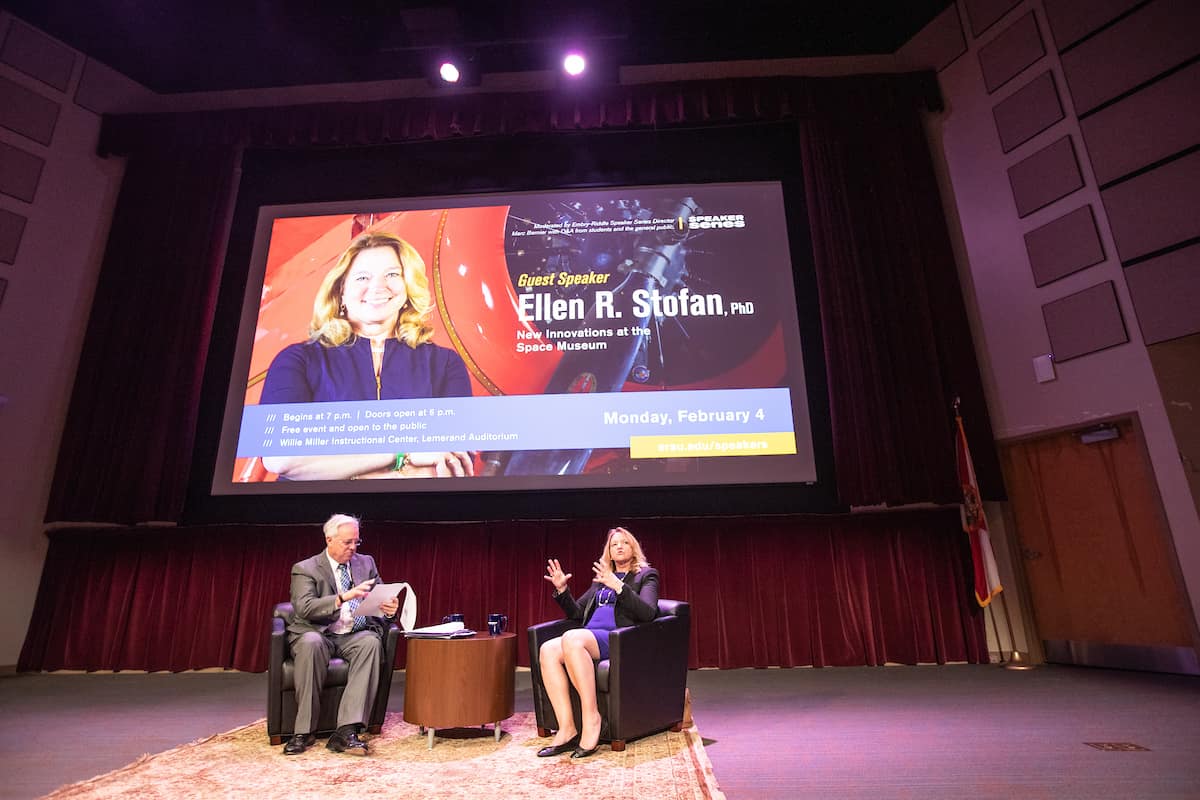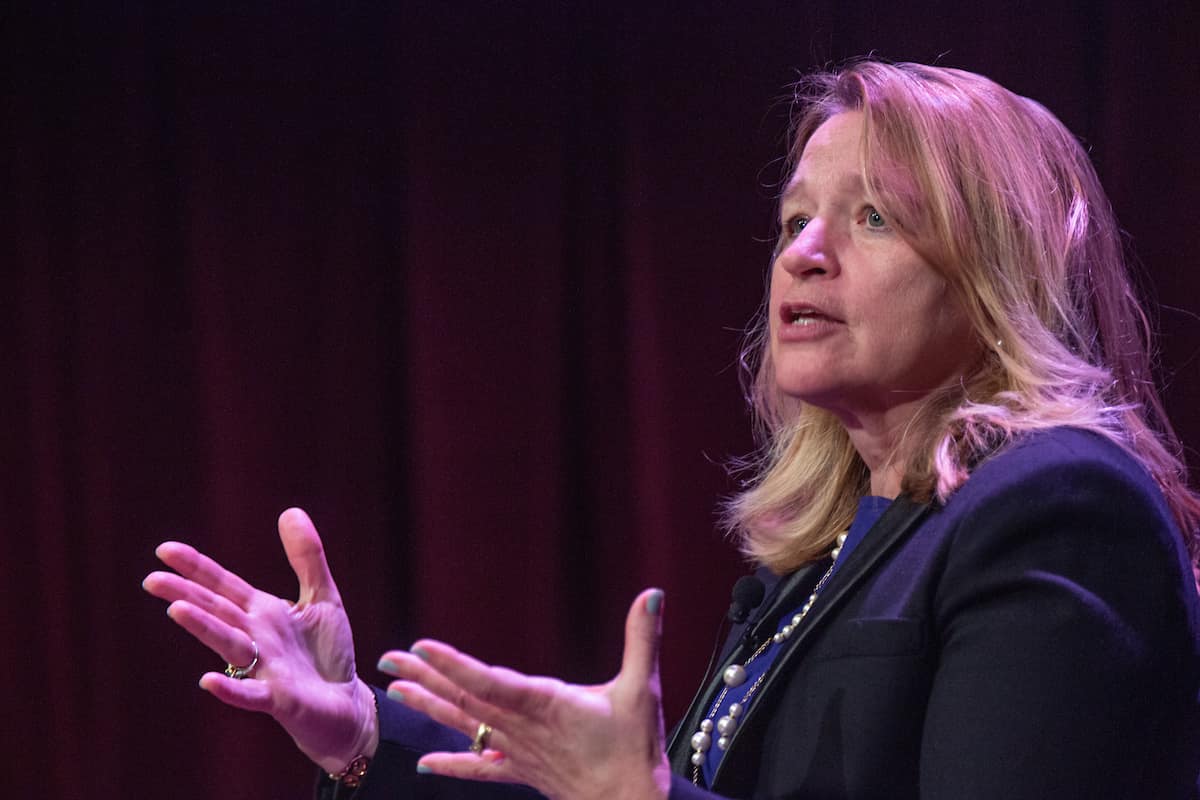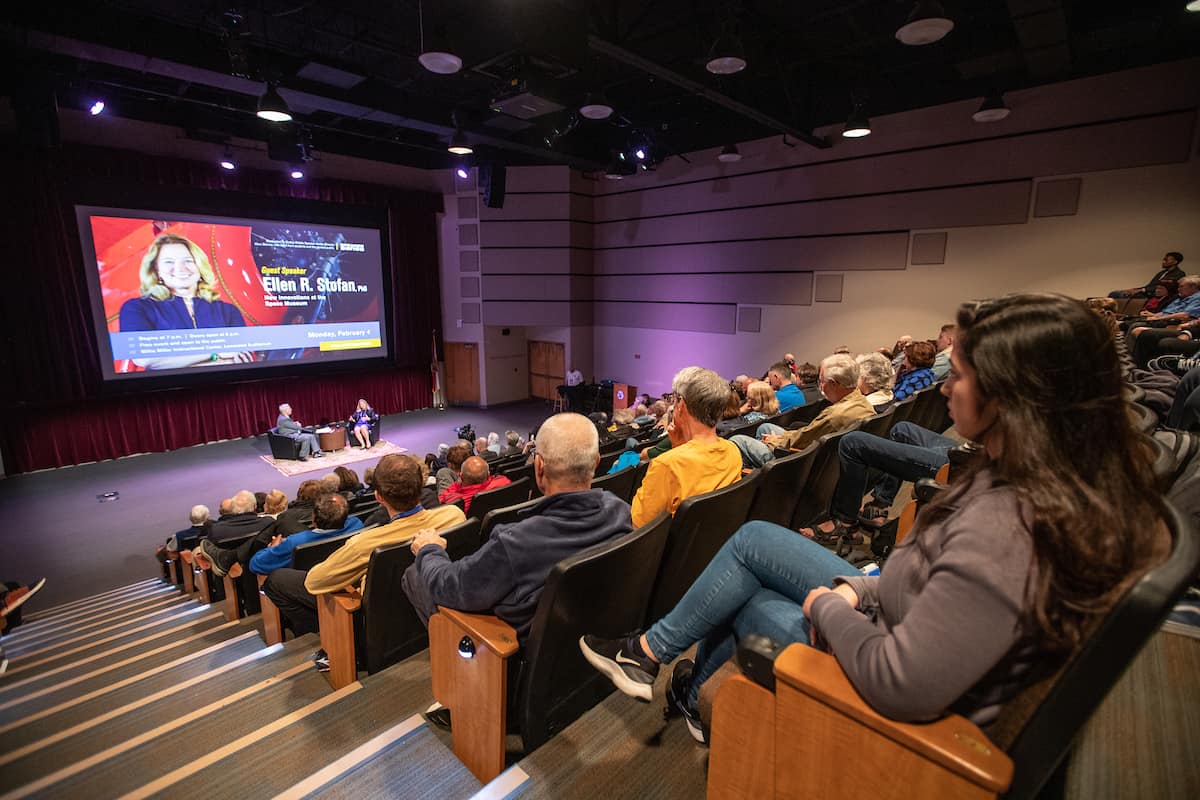Q&A: National Air and Space Museum Director Explores the Future of Space





Will we get to Mars in our lifetime? Why do we need space lawyers? What’s the most exciting thing about NASA right now?
Ellen Stofan, former NASA chief scientist and current John and Adrienne Mars director of the Smithsonian’s National Air and Space Museum, answered all of these questions and more at a recent Embry-Riddle SpeakER Series event hosted by Marc Bernier. Some of her responses have been paraphrased here, for brevity.
Read highlights from her talk below, or watch the discussion in full on YouTube.Will we get to Mars in our lifetime? Will we find life there?
We should get humans to Mars by the mid-2030s. That does not necessarily mean we will be colonizing such an inhospitable planet anytime soon. To settle the question of whether there is life on Mars is going to take scientists, boots on the ground, and exploring well below the surface.
What current NASA project are you most excited about?
Data from the James Webb Space Telescope will blow minds. It launches in 2020 for a 5- to 10-year mission, providing a backward glance of more than 13.5 billion years.
What is your favorite NASA project of all time?
I’m passionate about one day exploring Titan. My favorite mission was Cassini – which broke my heart when its mission ended as planned by crashing into Saturn. I also still want to send a boat to the Kraken Sea [the largest known body of liquid on the surface of Saturn’s moon Titan].
Why Titan?
A visit to Titan is not on everybody’s bucket list, but its volcanoes that spew methane ice and its hydrocarbon seas are endlessly intriguing to planetary geologists. This moon of Saturn is the only other place with a cycle of precipitation and erosion. Instead of water, think methane and ethane clouds, rains and lakes.
Do we really need space lawyers?
Increasingly, commercial space, international space stations (plural) and space junk are creating a need for space lawyers to determine rights and responsibilities.
What role will flight surgeons play in future Mars missions?
These experts will be critical for maintaining the health of astronauts, and the lessons they learn about DNA changes in space, along with the diagnostic/communications tools they develop, will benefit all of us, as telemedicine does today.
What is your advice for students – especially young women?
Keep at it! You are the people who are going to create the technology and make the discoveries that change the world. You are going to make things that end up in my museum one day.
The Embry-Riddle Speaker Series offers free, 90-minute discussions with some of the most exciting minds in the fields of aviation, engineering, science, technology and space. All events take place in the Capt. Willie Miller Instructional Center on Embry-Riddle’s Daytona Beach Campus. See the full upcoming schedule.